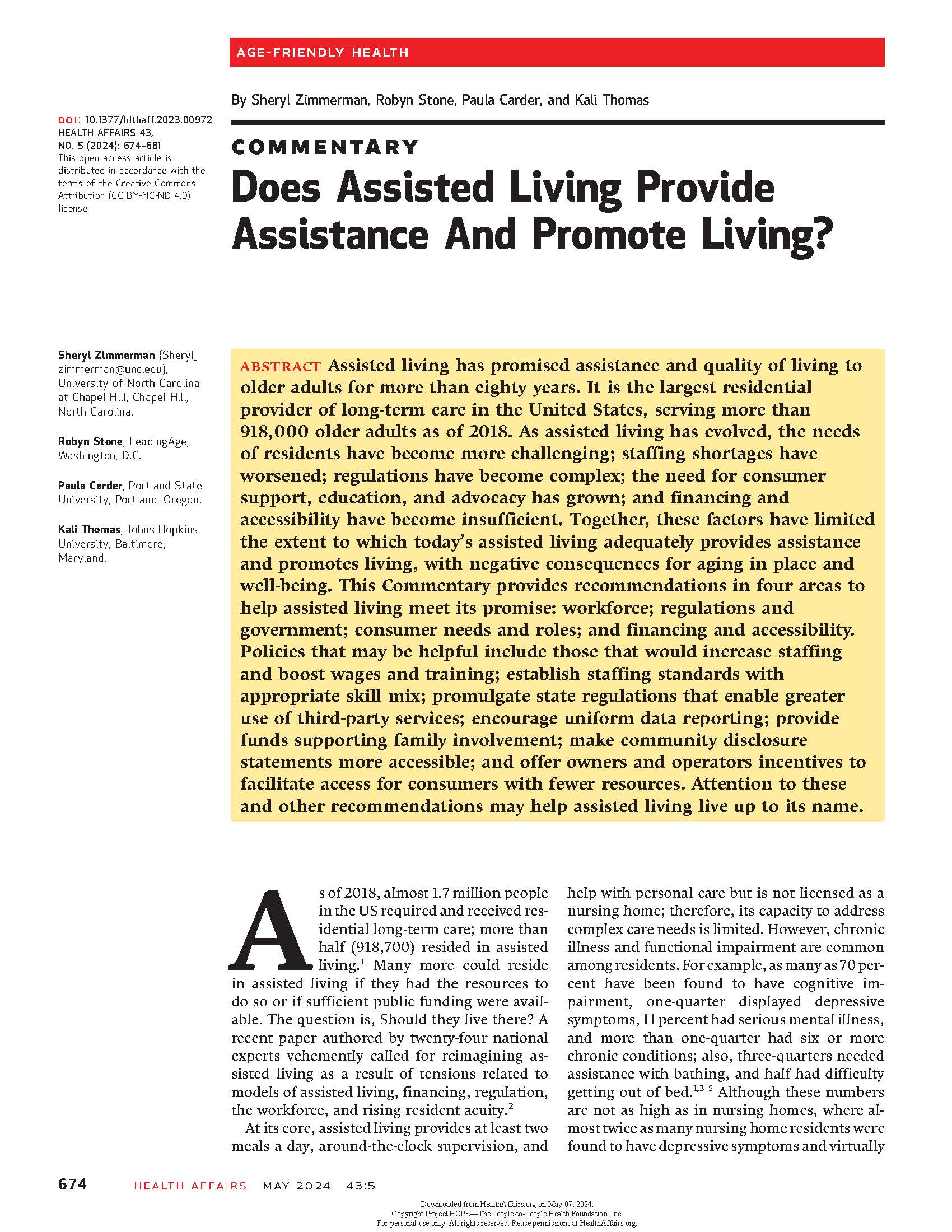Background
Potentially burdensome transitions at the end of life (e.g., repeated hospitalizations toward the end of life and/or health care transitions in the last three days of life) are common among residential care/assisted living (RC/AL) residents, and are associated with lower quality of end of-life care reported by bereaved family members. We examined the association between state RC/AL regulations relevant to end-of-life care delivery and the likelihood of residents experiencing potentially burdensome transitions.
Methods
Retrospective cohort study combining RC/AL registries of states’ regulations with Medicare claims data for residents in large RC/ALs (i.e., 25+ beds) in the United States on the 120th day before death (N = 129,153), 2017-2019. Independent variables were state RC/AL regulations relevant to end-of-life care, including third-party services, staffing, and medication management. Analyses included: (1) separate logistic regression models for each RC/AL regulation, adjusting for sociodemographic covariates; (2) separate logistic regression models with a Medicare fee-for-service (FFS) subgroup to control for comorbidities, and (3) multivariable regression analysis, including all regulations in both the overall sample and the Medicare FFS subgroup.
Results
We found a lack of associations between potentially burdensome transitions and regulations regarding third-party services and staffing. There were small associations found between regulations related to medication management (i.e., requiring regular medication reviews, permitting direct care workers for injections, requiring/not requiring licensed nursing staff for injections) and potentially burdensome transitions.
Conclusions
In this cross-sectional study, the associations of RC/AL regulations with potentially burdensome transitions were either small or not statistically significant, calling for more studies to explain the wide variation observed in end-of-life outcomes among RC/AL residents.


